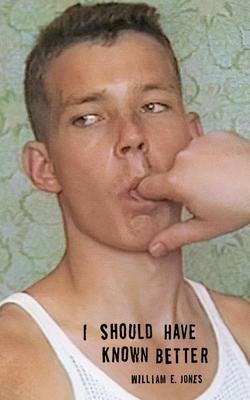
I Should Have Known Better's first person narrator, while working at a dead-end job in Los Angeles during the mid-1990s, reconnects with his best friend Moira, recently returned from Central America, and makes a new friend, Bernie, who teaches the history of photography. The two of them convince him to pursue a master's degree as a way of escaping the unrewarding life of a video store clerk. Once the narrator is exposed to an academic environment, he takes a dim view of the education that art school has to offer, but is happy to meet a group of talented fellow students who become close friends. He encounters a number of art world figures, ranging from the brilliant to the abject, who disabuse him of his illusions. The narrator has his most instructive experiences off campus, especially a love affair with the handsome and mercurial Temo, an insolent rich kid who leads a double life. Together they explore their sexual limits in scenes of bracing explicitness.
I Should Have Known Better bears witness to the last gasp of Los Angeles bohemia at the end of the twentieth century. The novel paints precise portraits of inspired eccentrics devoted to pursuing their dreams, "shopping artists" who believe in nothing but hedonism, and latter-day leftists who find themselves directionless after the fall of communism. Above all, the book pays tribute to the impulsive experiments and intense friendships of youth.
I Should Have Known Better's first person narrator, while working at a dead-end job in Los Angeles during the mid-1990s, reconnects with his best friend Moira, recently returned from Central America, and makes a new friend, Bernie, who teaches the history of photography. The two of them convince him to pursue a master's degree as a way of escaping the unrewarding life of a video store clerk. Once the narrator is exposed to an academic environment, he takes a dim view of the education that art school has to offer, but is happy to meet a group of talented fellow students who become close friends. He encounters a number of art world figures, ranging from the brilliant to the abject, who disabuse him of his illusions. The narrator has his most instructive experiences off campus, especially a love affair with the handsome and mercurial Temo, an insolent rich kid who leads a double life. Together they explore their sexual limits in scenes of bracing explicitness.
I Should Have Known Better bears witness to the last gasp of Los Angeles bohemia at the end of the twentieth century. The novel paints precise portraits of inspired eccentrics devoted to pursuing their dreams, "shopping artists" who believe in nothing but hedonism, and latter-day leftists who find themselves directionless after the fall of communism. Above all, the book pays tribute to the impulsive experiments and intense friendships of youth.
Paperback
$13.95